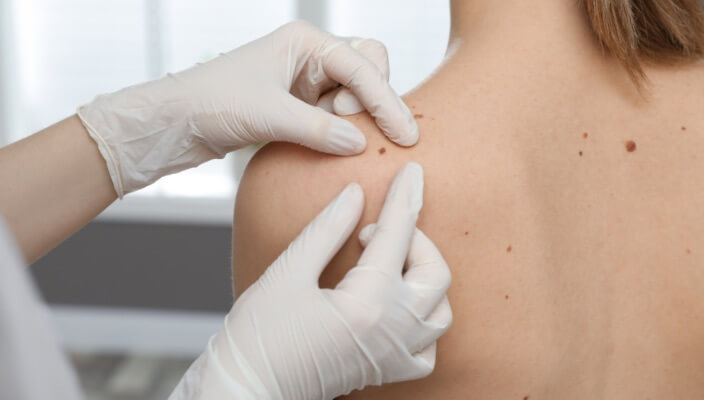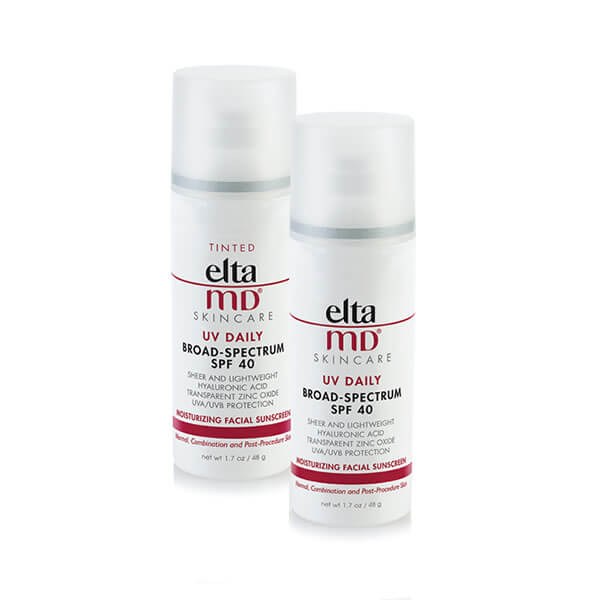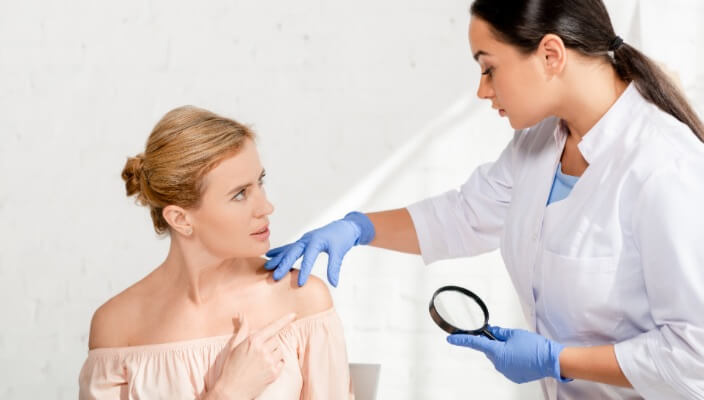Professional Skin Exams vs. Self-Checks
 Are you vigilant about your skin health but uncertain about the effectiveness of self-checks compared to professional exams? This article will delve into the critical differences between personal skin evaluations and those conducted by a dermatologist. We'll discuss the comprehensive nature of professional skin cancer screenings, outline the steps for conducting a thorough self-exam at home, and provide guidance on recognizing symptoms that necessitate a professional's expertise. By understanding these key aspects, you'll be better equipped to protect your skin health and navigate insurance coverage for necessary surgery, should it become a concern. Our goal is to empower you with the knowledge to take proactive steps in skin cancer prevention and early detection.
Are you vigilant about your skin health but uncertain about the effectiveness of self-checks compared to professional exams? This article will delve into the critical differences between personal skin evaluations and those conducted by a dermatologist. We'll discuss the comprehensive nature of professional skin cancer screenings, outline the steps for conducting a thorough self-exam at home, and provide guidance on recognizing symptoms that necessitate a professional's expertise. By understanding these key aspects, you'll be better equipped to protect your skin health and navigate insurance coverage for necessary surgery, should it become a concern. Our goal is to empower you with the knowledge to take proactive steps in skin cancer prevention and early detection.
The Importance of Regular Skin Cancer Screenings
At our Center for Surgical Dermatology, we emphasize the critical nature of regular skin cancer screenings. These exams are vital in detecting melanoma and other skin cancers at their earliest, most treatable stages. The risk of overlooking a suspicious lesion is significantly reduced when a trained professional conducts a thorough examination.
Self-checks are a helpful complement to professional screenings, but they are not a substitute. We possess the expertise and tools, such as laser technology, to identify abnormalities that may not be visible or recognizable to the untrained eye. This expertise is crucial in the early detection of skin cancer, which can be life-saving.
Our cancer screening process is designed to be comprehensive and systematic: we meticulously examine every inch of skin. This thorough approach ensures that we leave no stone unturned in our quest to protect your health:
- Initial visual assessment of skin condition
- Detailed examination with advanced diagnostic tools
- Discussion of any findings and recommended next steps
- Scheduling of follow-up appointments or treatments as necessary
Remember, the risk of skin cancer increases with age, but it can affect anyone. We encourage you to schedule regular screenings at our center, as early detection of melanoma can dramatically increase the chances of successful treatment. Trust us to be your partners in maintaining your skin's health.
Professional Skin Exams: What to Expect During a Dermatologist Visit
When you visit our Center for Surgical Dermatology for a professional skin exam, expect a meticulous and patient-focused approach. Initially, we conduct a comprehensive visual assessment to detect any signs of carcinoma or other skin diseases. This step is crucial for establishing a baseline of your skin's health.
Following the visual check, we employ advanced diagnostic tools to scrutinize the skin for any irregularities. If we spot a suspicious lesion, a biopsy may be necessary to determine the presence of disease. This procedure is performed with utmost care and precision, prioritizing your comfort and health.
The results of your exam are discussed in detail, ensuring you understand any findings and the implications for your health. We believe in transparent communication with our patients: this includes explaining the potential risks, treatment options, and preventive measures to safeguard against skin disease.
- Comprehensive visual assessment for signs of skin disease
- Use of advanced diagnostic tools to detect irregularities
- Potential biopsy of suspicious lesions
- Detailed discussion of findings and health implications
Regular professional skin exams are a cornerstone of preventive health care. We encourage our patients to schedule these screenings routinely, as they are instrumental in the early detection and treatment of skin cancer, including melanoma and carcinoma.
Self-Check Strategies: How to Perform a Skin Self-Exam at Home
At our Center for Surgical Dermatology, we advocate for regular self-checks as a proactive measure in skin health. While not a replacement for professional oncology assessments, self-exams can alert you to changes in your skin between visits. Look for new lesions or alterations in existing freckles, as these can be early signs of ultraviolet damage or skin cell changes.
Performing a skin self-exam is straightforward: start by examining your body in a well-lit room, using a full-length mirror. Pay special attention to areas not regularly exposed to sunlight, as skin cancer can develop anywhere on the body. If you notice any unusual or new lesions, schedule an appointment with us for a professional evaluation.
To ensure a thorough self-exam, follow these steps:
- Examine your face, especially the nose, lips, mouth, and ears.
- Inspect your scalp, using a comb to part your hair for better visibility.
- Check your hands, including nails, palms, and the backs of your hands.
- Review both the front and back of your legs, as well as your feet, including the soles and spaces between the toes.
Remember, early detection is key in the successful treatment of skin cancer. We encourage you to perform monthly self-exams and report any concerns to our team. Together, we can monitor your skin for any signs of cell changes or lesions that may require medical attention.
Recognizing Warning Signs: When to Seek Professional Advice
At our Center for Surgical Dermatology, we guide our patients through the ABCDEs of Melanoma Detection, helping differentiate between benign and suspicious lesions. It's imperative to recognize changes in your skin that should prompt a physician's visit. We advise documenting any symptoms to share with your dermatologist and stress the importance of scheduling a prompt evaluation, especially if you have concerns post self-check. Our expertise extends to advising on protective measures like sunscreen and discussing advanced treatments such as radiation therapy during screening.
The ABCDEs of Melanoma Detection
Understanding the ABCDEs of Melanoma Detection is a critical step in recognizing the warning signs of skin cancer. A stands for Asymmetry, where one half of the mole doesn't match the other; B is for Border irregularity, with edges that are notched or blurred; C represents Color that varies from one area to another; D denotes Diameter larger than 6mm, about the size of a pencil eraser; and E stands for Evolving, meaning change in size, shape, color, or elevation. These signs, especially when coupled with risk factors such as indoor tanning or a history of sunburn, necessitate a professional evaluation.
It's essential to note that not all skin changes signify cancer; a melanocytic nevus, for instance, is typically a benign mole. However, if you notice a lesion that resembles a scar without a history of injury, or if a pre-existing mole starts to evolve, these could be red flags. We encourage our patients to be vigilant and to seek our expertise if they detect any of these symptoms: our professional skin exams are designed to distinguish between benign and concerning lesions, guiding you toward the appropriate care.
| ABCDEs of Melanoma | Description | Associated Risk Factor |
| Asymmetry | One half of the mole does not match the other | Genetic predisposition |
| Border | Edges are notched or blurred | Excessive sun exposure |
| Color | Variation in color within a single mole | Indoor tanning |
| Diameter | Larger than 6mm | History of sunburn |
| Evolving | Changes in size, shape, color, or elevation | Presence of multiple melanocytic nevi |
Differentiating Between Benign and Suspicious Lesions
Understanding the distinction between benign and suspicious lesions is a critical component of skin health management. During a professional exam, we assess for signs of actinic keratosis, a condition that may indicate the early stages of skin cancer. Our clinical expertise allows us to discern these from benign conditions, guiding patients toward appropriate therapy options when necessary. This discernment is vital, as early intervention can significantly impact the prognosis of a skin condition.
When conducting self-checks, it's essential to monitor for new growths or changes in existing moles. If you observe any alterations that cause concern, such as an increase in size or a change in color, it's imperative to schedule an exam with us. We can provide a thorough evaluation and, if needed, include you in a clinical trial for cutting-edge therapy. Our goal is to ensure that any suspicious lesion is identified and treated promptly, offering peace of mind and safeguarding your health.
Changes in Your Skin That Should Prompt a Doctor's Visit
If you notice persistent itching or changes in the texture of your skin, it's time to consult with us. These symptoms can be indicative of underlying issues that may require cancer treatment. As surgeons specializing in dermatology, we're equipped to assess any suspicious tissue changes and provide the necessary care. It's our commitment to ensure that you receive a timely and accurate diagnosis, followed by a personalized treatment plan.
Should you observe a lesion that bleeds or does not heal, it's crucial to seek professional advice. In our practice, we've seen how early intervention by a skilled surgeon can make a significant difference in patient outcomes. Our nursing staff is also trained to support you through the diagnostic and treatment process, ensuring that you feel informed and cared for every step of the way.
Documenting Symptoms to Share With Your Dermatologist
At our clinic, we understand that effective skin care begins with vigilant observation. We encourage our patients to document any changes they notice in their skin or scalp, including new or evolving lesions, persistent dermatitis, or unusual symptoms. This record is invaluable when you make an appointment with us: it helps us to quickly identify potential issues and provides a clear history of your skin's health.
Keeping a detailed symptom diary can significantly enhance the diagnostic process. Note the dates of any changes, the appearance of symptoms, and any relevant factors such as sun exposure or new products used. This information allows us to tailor our approach to your unique situation, ensuring that we address your concerns with precision and care:
- Record the date of any new or changed lesions.
- Describe the appearance and any symptoms like itching or bleeding.
- Note any potential triggers, including sun exposure or new skin care products.
Scheduling a Prompt Evaluation at the Center for Surgical Dermatology
When we notice changes in our skin, whether it's a new spot that resembles acne or a change in a mole's appearance, we understand the urgency of scheduling a prompt evaluation at our Center for Surgical Dermatology. We're here to provide peace of mind through a comprehensive skin biopsy if necessary, and we work closely with health insurance providers to ensure that the process is as seamless as possible for our patients. Our team is committed to leveraging the latest research to offer the most effective treatments for all skin concerns, including hair loss and persistent skin conditions.
Our priority is your well-being, which is why we encourage immediate contact for a professional assessment when you detect any warning signs. Early detection is key, and our expertise in skin health allows us to quickly discern whether a symptom may require further investigation or treatment. We're equipped to address a wide range of dermatological issues, from the common to the complex, and our patients can trust us to guide them through every step of their skin care journey with compassion and professionalism.
From Our QualDerm Family of Brands: What to Expect During Your Total Body Skin Exam
Prevention and Early Detection: Tips to Protect Your Skin Health
Preventive measures are paramount in safeguarding against skin conditions like merkel cell carcinoma and dysplastic nevus. We advocate for the use of sunscreen and protective clothing as fundamental practices to minimize harmful ultraviolet exposure. These simple steps can significantly reduce the risk of developing serious skin conditions.
Self-checks play a crucial role in early detection, yet they cannot replace the comprehensive nature of professional skin exams. We utilize advanced diagnostic techniques, including magnetic resonance imaging, to detect abnormalities beyond the surface. This level of scrutiny is essential for identifying issues that may require surgical intervention.
When abnormalities are detected, whether through self-examination or during a professional check, we may consider plastic surgery as a treatment option. This approach is particularly relevant for dysplastic nevus, which may necessitate surgical removal to prevent progression to melanoma:
- Identification of suspicious lesions during self-checks.
- Professional evaluation to confirm the nature of the lesion.
- Detailed imaging to assess the extent of the abnormality.
- Consideration of plastic surgery for removal if necessary.
Our commitment to your skin health extends beyond the clinic. We encourage regular self-exams and timely professional screenings to detect early signs of conditions like merkel cell carcinoma. Early detection, coupled with our surgical expertise, can lead to more successful outcomes and better overall skin health.
Featured Products

EltaMD UV Daily SPF 40 original
Serious UV protection and superior hydration join forces in this sheer facial sunscreen. EltaMD UV Daily has hyaluronic acid to boost moisture retention and diminish fine lines. This lightweight moisturizer with UV protection can be worn alone or under makeup. Choose from tinted and untinted formulas for use every day. 1.7 oz / 48 g

Pinnacle Skin Care Tinted Mineral Sunscreen SPF 30
This luxurious, multi-tasking BB Cream combines superior broad-spectrum UVA/UVB protection with all-day oil control, gentle hydration, and age-defying antioxidant benefits. May be worn alone or under makeup.
Related Blog Posts

- Skin Cancer
- Skin Exams
It’s time to face the facts: skin cancer can develop in individuals of all skin colors, including those with darker skin tones.
Read More
- Skin Cancer
- Skin Exams
Total Body Skin Exams (TBSEs) are crucial for healthy skin. Learn more about the importance of TBSEs and skin cancer detection.
Read More
- Skin Cancer
- General Dermatology
- Skin Exams
Prioritize your health: Begin skin cancer screenings today at the Center for Surgical Dermatology. Stay proactive with early detection.
Read More
